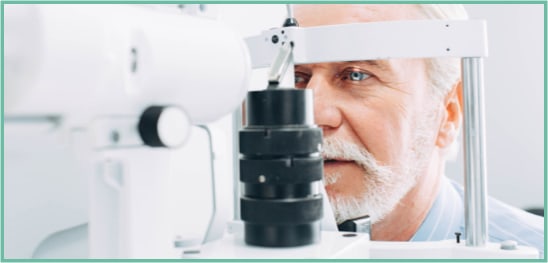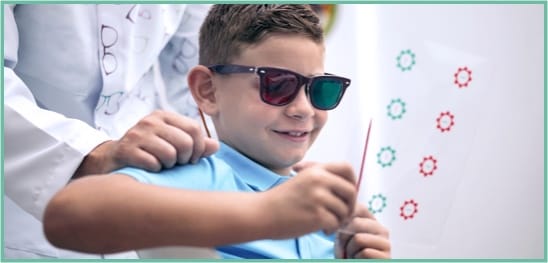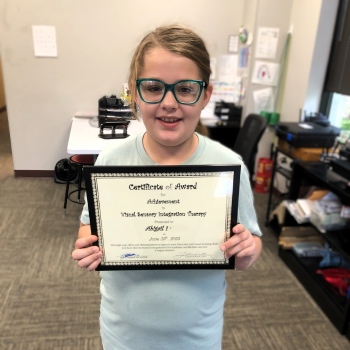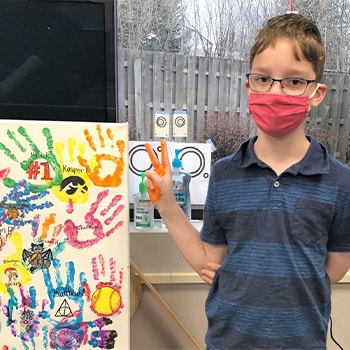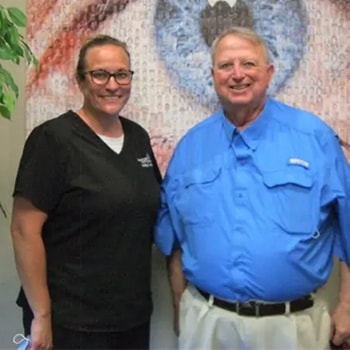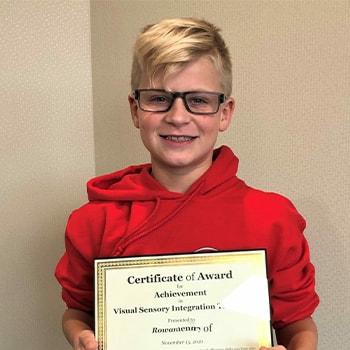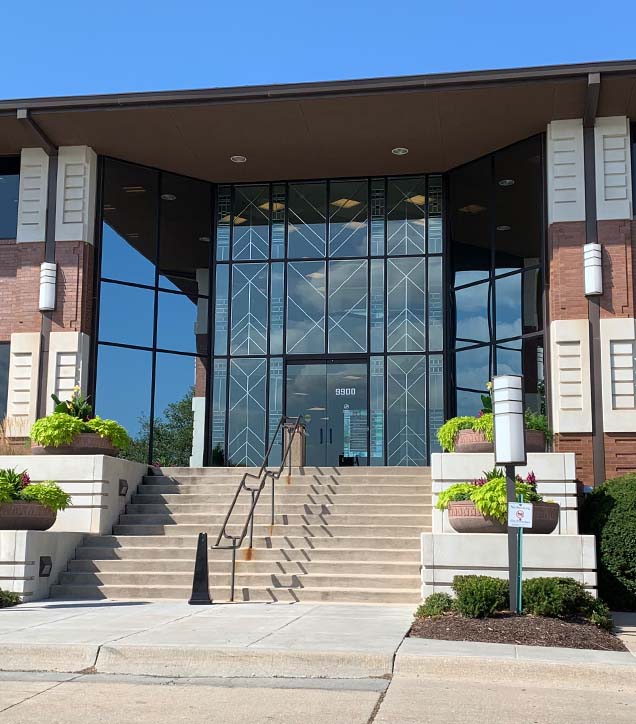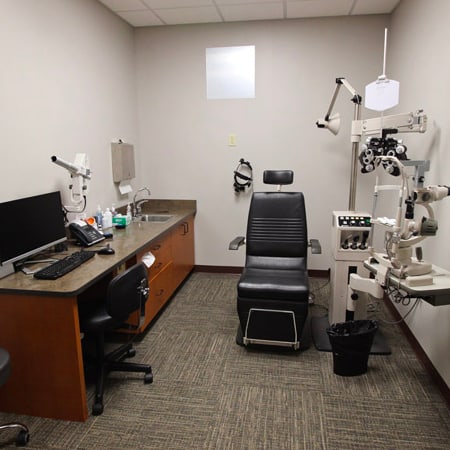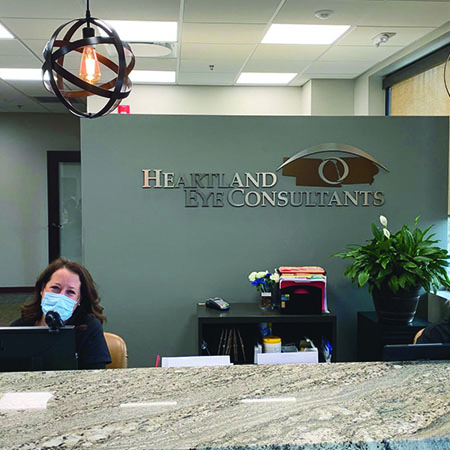Convergence insufficiency is a common eye condition that can affect your eyes’ ability to work together up close, making it harder to focus and see clearly. For young children, this condition can be easily confused with ADHD, which can affect focus and behavior—leading to struggles in school.
While confusion between these conditions is normal, convergence insufficiency and ADHD may have a stronger connection than patients believe. Convergence insufficiency and ADHD are often confused for one another, and those affected by ADHD may be more likely to experience convergence insufficiency.
Understanding Convergence Insufficiency
Convergence insufficiency can affect your ability to focus on close-up objects. When you’re affected by convergence insufficiency, the nerves controlling your eye muscles may have trouble working together effectively, leading to blurry vision, double vision, and other uncomfortable symptoms as one or both eyes drift outward when you’re reading a booking or focusing on another task up close.
Convergence insufficiency symptoms can include:
- Blurry vision
- Double vision
- Tired eyes
- Difficulty concentrating
- Headaches
While experts don’t have a definite answer for what causes convergence insufficiency, it can be related to conditions affecting your brain, like concussions or traumatic brain injuries. Many patients develop this condition in childhood, and experts estimate that convergence insufficiency currently affects approximately 2–13% of children and around 1 in 6 adults.
What Is ADHD?
Attention-deficit/hyperactivity disorder (ADHD) is a neurodevelopmental disorder that can affect how someone focuses, listens, or responds to triggers in their environment. It’s common for people to assume that a child showing ADHD symptoms is just misbehaving, but ADHD may require lifelong management—it’s not just a phase in someone’s life.
ADHD symptoms include:
- Daydreaming
- Fidgeting or not being able to sit still
- Talking excessively
- Struggling to wait your turn
- Forgetting things frequently
- Having trouble getting along with other people
Research is always ongoing into what causes ADHD, and while there are currently no definite causes, many risk factors exist. Genetics, premature birth, brain injury, and exposure to certain environmental risks during pregnancy can potentially cause the development of ADHD.
The Relationship Between Convergence Insufficiency & ADHD
Convergence insufficiency and ADHD have a unique relationship. The symptoms of these 2 conditions often overlap, leading to potential misdiagnosis—someone may think they have ADHD when they have convergence insufficiency. Many patients and parents can misinterpret difficulty reading and focusing caused by convergence insufficiency as symptoms of ADHD.
Besides the risk of misdiagnosis, there is another potential link between convergence insufficiency and ADHD—they often occur alongside each other. Recent research from 2020 has also shown that children with ADHD may be more likely to struggle with their close-up vision than children without ADHD.
A 2022 review of over 70 studies also found a relationship between ADHD and convergence insufficiency, though future research is still needed to further confirm the relationship between both conditions. Additionally, there may be a 15–40% greater chance of developing convergence insufficiency if you have ADHD—the exact number hasn’t been confirmed through research.
How Can Your Eye Doctor Help?
The first step in treating convergence insufficiency is to diagnose the condition with help from your eye doctor. We can diagnose convergence insufficiency during an eye exam and look for other potential vision-related problems, like refractive errors.
Treatment for convergence insufficiency usually consists of vision therapy and exercises designed to strengthen the eye muscles. The treatment we recommend may be active or passive.
Active treatment involves vision therapy exercises to help improve your eyes’ ability to work together. With active treatment, some patients can improve their symptoms within weeks, depending on the severity of their condition.
Passive treatment involves wearing specialized glasses to help you focus and reduce convergence insufficiency symptoms. Passive treatment can help reduce symptoms, but it isn’t considered a permanent solution for convergence insufficiency.
Vision therapy may also include exercises like tracking moving objects with your eyes, focusing on different objects at various distances, and using eye patches. Other exercises for convergence insufficiency include focusing on an object while slowly bringing it closer and away from your face and rolling your eyes in different directions.
With proper treatment and diligent practice of eye exercises, many people with convergence insufficiency can improve their ability to focus on nearby objects without experiencing eye strain or other uncomfortable symptoms.
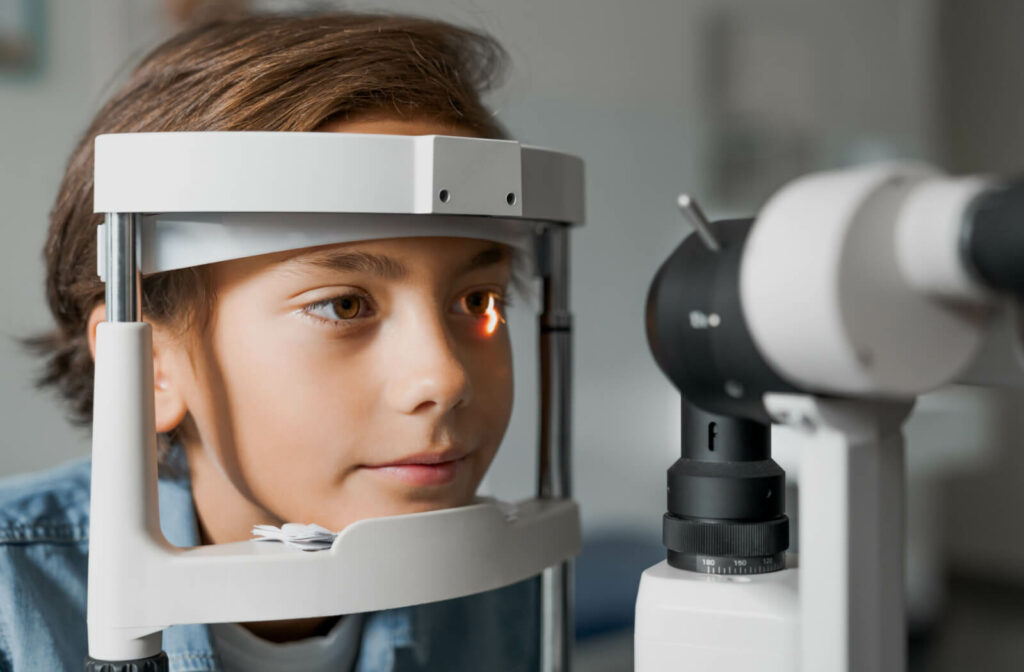
Get Help with Convergence Insufficiency
Convergence insufficiency and ADHD have a unique connection, but you don’t need to struggle with close-up vision forever. We are here to help diagnose and treat convergence insufficiency for kids and adults. With a close look at your eyes, we can recommend the right treatments for your needs.
Contact us at Heartland Eye Consultants if you or a loved one experiences convergence insufficiency symptoms. We are ready to help.




